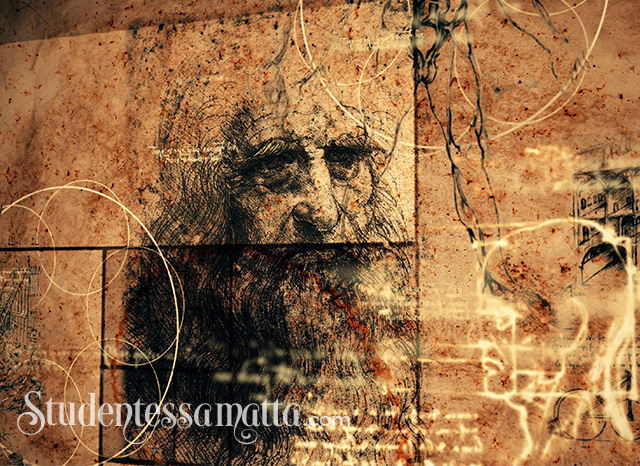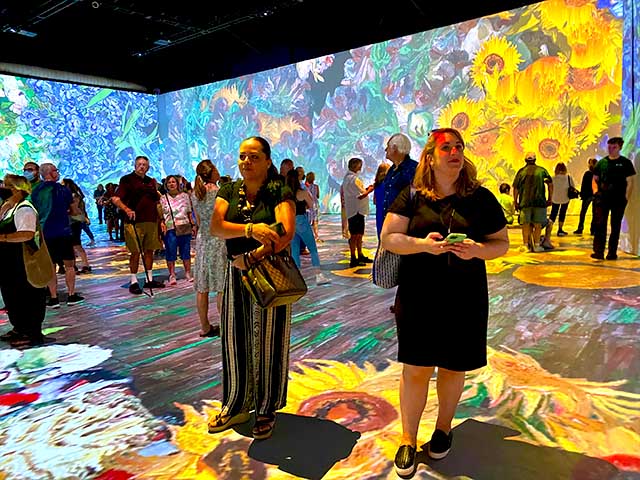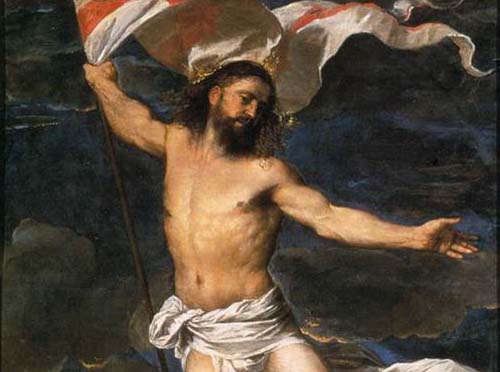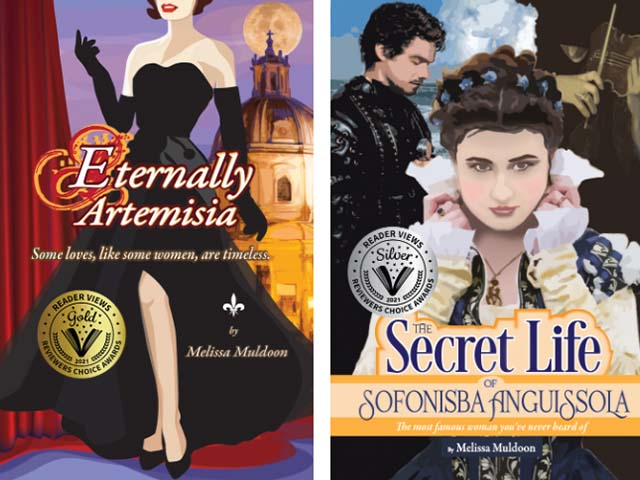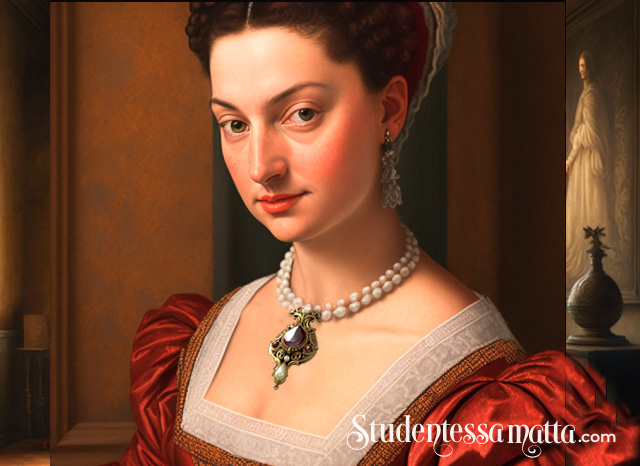
Isabella’s Death: A Mystery Uncovered
This article was written for and published by Women Writers, Women’s Books
Isabella de Medici: In her words, she tells the truth of how she died.
Isabella de’ Medici, daughter of the powerful Cosimo I, has long been shrouded in intrigue and legend. Her death was said to be a tragic accident… or was it? It’s time to hear her side of the story.
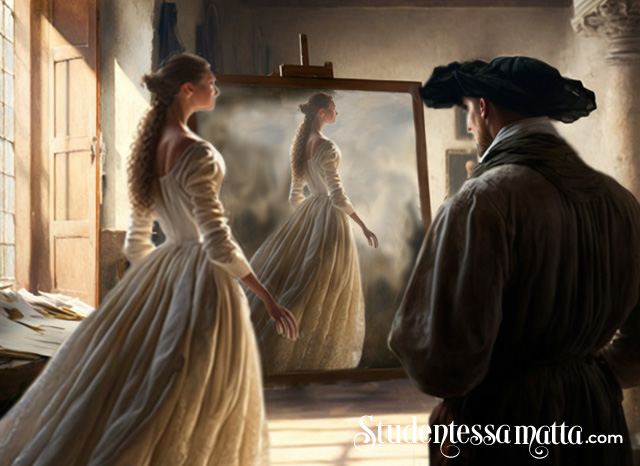
My father — Cosimo, The Grand Duke of Tuscany — adored me!
Greetings, my dear friends. My name is Isabella de’ Medici, but many called me the Star of Florence! I was born into the powerful and wealthy Medici family. My father, Cosimo, the Grand Duke of Tuscany, raised me to be a strong, independent woman. It was a bold and daring thing for my father to do, as few women of my day and age were given such liberties or educated as I was. But what can I say? My father doted on me, and I adored him.
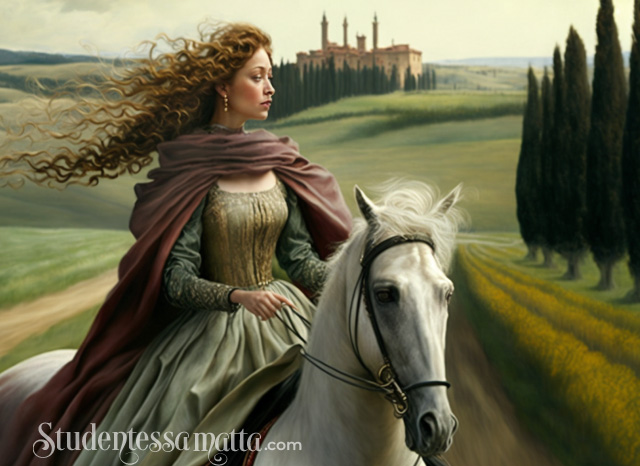
Sobriety? My darlings, how dull!
When my beautiful mother Eleonora died of malaria along with my younger brother Giovanni whom I cherished like no other, I became the first lady of Firenze and helped my father rule the city. I patronized the arts and supported many talented individuals, including the great Giorgio Vasari and Bronzino, who painted a marvelous portrait of me. I was a fine horsewoman, studied many languages, and spoke French better than my tutor. I also had a passion for science and mathematics, as well as for parties, wine… and men. I organized feasts, parades, and many diverting intimate gatherings amongst friends. I flirted and danced and indulged in risqué parlor games! Of course, I could be a naughty little brat; I’m the first to admit it… but oh my, those were wonderful carefree days of youth. My dears, really, sobriety is so overrated!
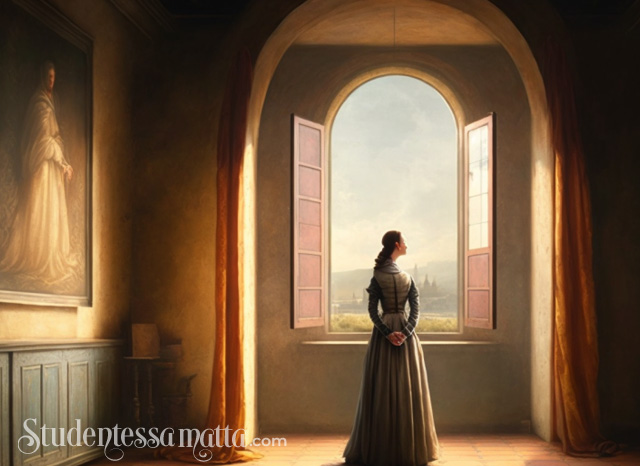
At the age of sixteen, I was given in marriage to Paolo Giordano Orsini.
Given my elevated status in society and that my father was the most influential man in Tuscany, I was expected to make a good match and uphold the family’s reputation. So, at the age of sixteen, I was given in marriage to Paolo Giordano Orsini, a man of wealth who could trace his heritage back to the Romans. Unfortunately, my marriage to Paolo was not a happy one. It didn’t take long for me to grow up and realize that all men were not like my loving, affectionate, and lenient father.
Paolo, instead, was an indecent corpulent man, and his manners resembled those of a pig. He was unfaithful and abusive and preferred to remain in Rome to rut with his gutter whores. Dismayed and disillusioned, I returned to Florence to live in my father’s palace. There I enjoyed an independent life as if I hadn’t ever been married. What joy! I was free to do what I wanted, when I wanted, and indulge in pursuing my own happiness. When my husband realized I didn’t miss him at all, not wanting to be made a laughing stock should I take a lover, he ordered his cousin Troilo Orsini to keep an eye on me. It is rather amusing, for in the end, Troilo became the greatest passion of my life, my lover, with whom I conceived children. Of course, I kept this secret from Paolo, who was too stupid and obtuse to realize the truth.
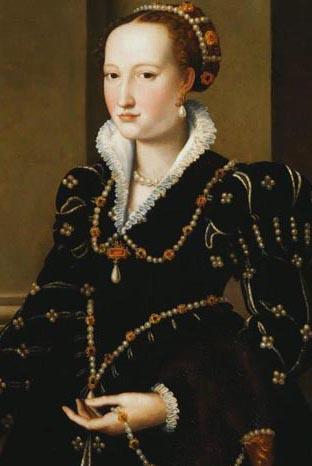
Francesco my brother betrayed me.
Sadly, I underestimated my husband, who was further agitated by my treacherous eldest brother Francesco, who had fallen under the spell of his conniving mistress Bianca Cappello. She whispered into his ear soured words and twisted truths about me, and it wasn’t long before Francesco realized I was a cog in his power-hungry scheme to rule Florence. Even as a small child, he detested me because I was more intelligent than he, and because of this, our father favored my company over his.
After Cosimo was laid to rest in the Medici crypt and I no longer had a protector, Francesco leaped into action with a brutal plan to murder me at the remote Medici hunting lodge in Cerreto Guidi, a few miles west of Florence. To ensure success, he enlisted my husband’s services. It was an easy request as Paolo wanted his share of the Medici fortune and to exact his revenge upon me after spies finally informed him of my infidelity.
Although I distrusted them both, I thought I had things under control. It never occurred to me that two men could be so cruel as to kill a wife and a sister. But, I miscalculated the extent of their evil intent, and I never saw the trap they laid for me. When I woke on that sultry morning in July to wash my long dark hair, I never imagined I’d be dead before it was dry. I was preyed upon, like the animals my husband and brother hunted in the woods around the villa. They hung me in my bedroom, strung up by a cord they inserted through a small hole in the ceiling from the room above.
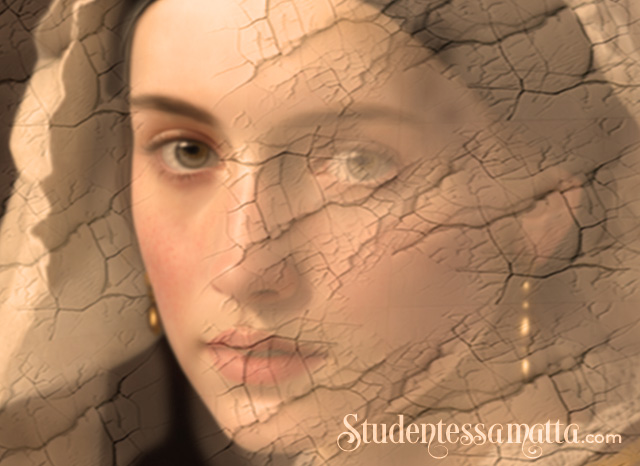
It was a terrible end to a life with so much promise.
It was a terrible end to a life with so much promise, and it pains me to think of all I could have accomplished if I had been given more time. Who gave them the authority over God to take a life? What right did they have to defame me and spread insidious lies claiming my death was accidental and that I’d slipped and fallen, cracking my head on a porcelain basin? To extinguish a life was to kill a small piece of beauty; no one person should have that power over another. They could slander me and sequester my portrait but never cancel me completely. Even over my dead body, I wouldn’t allow it!

The White Lady of Cerreto Guidi: a soul seeking justice
I died that day, but my desire to be vindicated was too strong to fade into darkness and into oblivion. So I remained, a mere shade amongst the living, trapped in Cerreto Guidi. As the years passed, my presence did not go unnoticed. As I wandered listlessly through my father’s hunting villa, the grounds, and surrounding forests, the village people claimed they saw my ghostly specter. They began calling me the “White Lady.”
I waited patiently because I knew that good would triumph over evil one day, and beauty would be reawakened. My portrait would be found, the truth would be told, and I would be redeemed. People would remember that Isabella de Medici, the Star of Florence, was an intelligent woman and a rebellious force to be reckoned with. They would know she had loved deeply and was full of mischief and mirth, both angelic and promiscuous — a perfectly imperfect woman. And therein lies my fascination, why I was such a captivating subject for Master Bronzino, and the reason he wanted to capture me on canvas.
I hope my story can serve as a reminder that women throughout history have faced challenges and hardships but have also accomplished much and made a lasting impact on the world around us. Beauty is awakened when we find that special talent and passion deep within us. We grow strong, and no one will ever again have the power to dismiss or erase us.
Read the novel that was inspired by Isabella de’ Medici
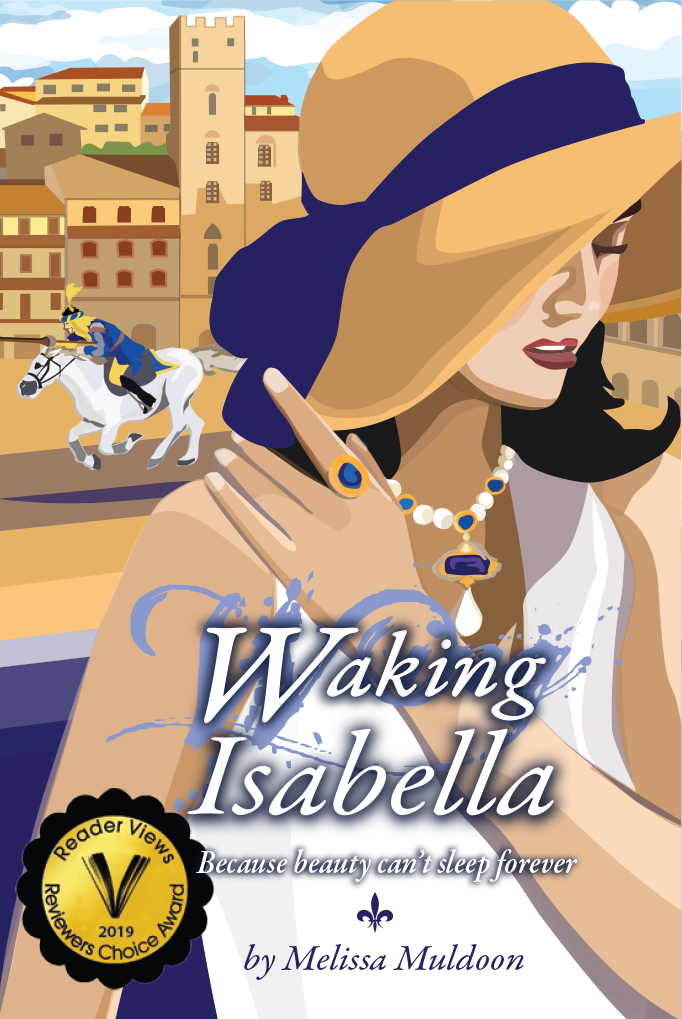
Waking Isabella
Waking Isabella is a story about uncovering hidden beauty that, over time, has been lost, erased, or suppressed. It also weaves together several love stories as well as a few mysteries. Nora, an assistant researcher, is a catalyst for resolving the puzzle of a painting that has been missing for decades. Set in Arezzo, a small Tuscan town, the plot unfolds against the backdrop of the city’s antique trade and the fanfare and pageantry of its medieval jousting festival. While filming a documentary about Isabella de’ Medici—the Renaissance princess who was murdered by her husband—Nora begins to connect with the lives of two remarkable women from the past. Unraveling the stories of Isabella, the daughter of a fifteenth-century Tuscan duke, and Margherita, a young girl trying to survive the war in Nazi-occupied Italy, Nora begins to question the choices that have shaped her own life up to this point. As she does, hidden beauty is awakened deep inside of her, and she discovers the keys to her creativity and happiness. It is a story of love and deceit, forgeries and masterpieces—all held together by the allure and intrigue of a beautiful Tuscan ghost.
